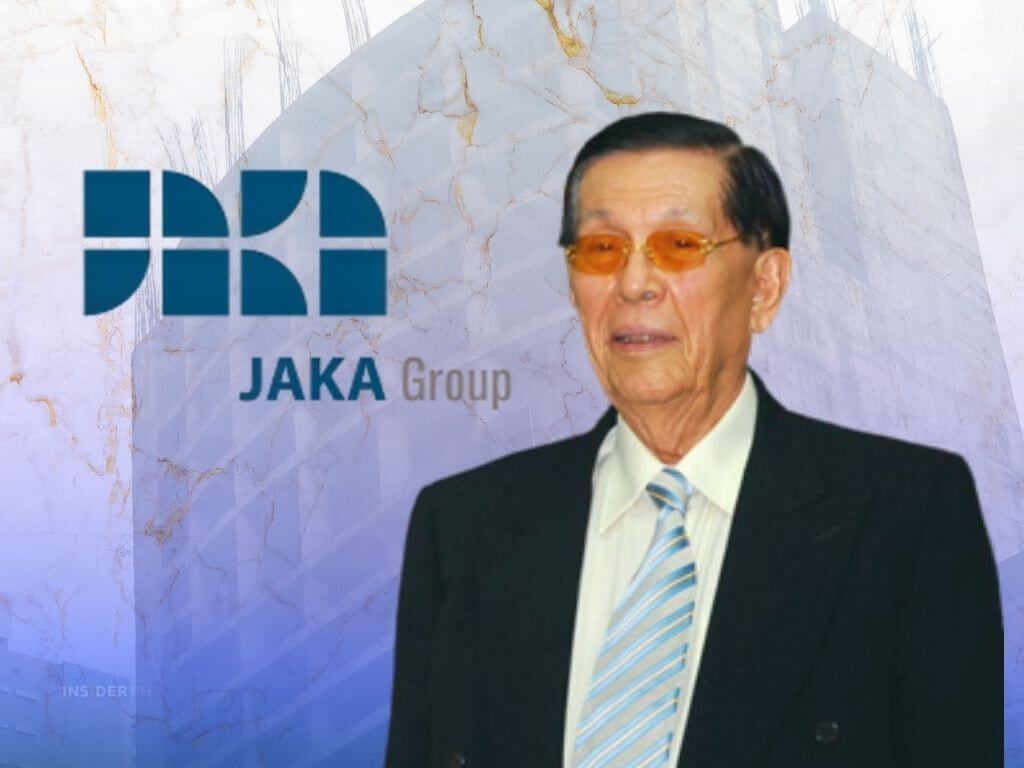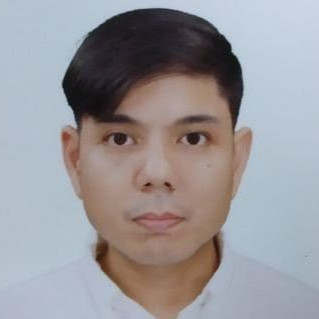

Launched in 1996 by the JAKA Group of Companies of the family of Juan Ponce Enrile, the JAKA Tower — estimated to cost P2.5 billion — was touted to be the country’s tallest building and was expected to be completed in 1999.
“[It’s] a fitting testimony to the Filipinos’ skills and ability to embark on a project of such magnitude,” said then BSP Governor Gabriel Singson during the project’s formal launch. “A step in the right direction in the country’s relentless march to catch up with the rest of Asia.”
The onset of the Asian Financial Crisis in 1997 befell many companies, and the JAKA Group was not spared — with the JAKA Tower project standing as a stark reminder until the site was acquired by Alveo Land in 2014.
The story of Juan Ponce Enrile — presidential legal adviser, former senator, congressman, and defense secretary who died recently at 101 years old and had earlier waived his right to his share of his father’s inheritance — and that of his JAKA Group, is a tale of how politics and business in our country often intertwine.
It is also a cautionary reminder that even the most powerful and influential business empires remain vulnerable to economic downturns and succession troubles.
The birth of JAKA
In 1974, two years after the imposition of Martial Law — of which Juan Ponce Enrile was the recognized architect — Enrile, then defense secretary under Ferdinand Marcos Sr., and his wife Cristina née Castañer, saw it as an opportune time to form a business that would, at the onset, manage their personal assets, with the ultimate goal of building “a stable, reputable and profitable business organization.”
Thus, on Aug. 8, 1974, JAKA Investments Corp. (JIC) was born — JAKA being a combination of the names Jack and Katrina, the two Enrile children. At its early stage, with only five employees and an asset base of roughly P50 million, JAKA served to manage real estate properties and shares of stock in various companies.
It was also around this period that Enrile appointed Nora A. Bitong, a certified public accountant and SGV alumna, as president and CEO.
Eventually, as the business grew, JIC became the holding company of all the affiliate firms under the JAKA Group, which during its peak consisted of 21 companies under six divisions. (The group’s marketing and distribution arm would later play a key role in Enrile’s 1998 presidential bid, although he ultimately lost.)
Republic Glass and PhilCom
In March 1975, JAKA made its first significant investment: six million shares of Republic Glass Corp., followed by the acquisition of shares in Philippine Global Communications or PhilCom. A year later, based on company disclosures, JAKA posted a 10-percent increase in stockholders’ equity and a 21-percent increase in total resources.
Buoyed by this initial success, JAKA moved on in 1977 to invest in what would perhaps become its most recognized industry: wood and match manufacturing.
Unfazed by its inexperience in the field, JAKA assumed the forestry operations of Dolores Timber Inc., Samar Lumber Inc., and Provident Tree Farms. It also consolidated several distressed matchstick companies — including Panomatch and Samar Match — under what would become the Eurasia Group.
(Enrile, in his personal capacity, also controlled San Jose Timber Corp., which held sizable logging concessions in Samar and Agusan del Sur. Another similar firm, Casilayan Softwood Development Corp., would also be formed.)
Entering the coconut industry
The 1980s saw JAKA enter a new field — agriculture, through the coconut industry — a move that did not come as a surprise, as Enrile once had oversight over the Philippine Coconut Authority.
In rapid succession came the formation of Cocoland Development Corp., the acquisition of Sunripe Coconut Products, Inc., and the establishment of Pacific Royal Basic Foods Inc. for the production of desiccated coconuts, a business that continues to operate today.
Expanding into real estate and other fields
JAKA also invested heavily in real estate. In 1987, with Enrile now serving as senator, a 7,000-sq.m. lot in Pasong Tamo was acquired. A year later, the Elizalde Building — which would later serve as the site of the JAKA Tower — was bought from Manuel “Manda” Elizalde Jr.
Other prized properties, such as the JEG Building in Legaspi Village and the Cibeles Building on Ayala Avenue, would be added to their growing portfolio, all consolidated under JAKA Land Inc.
JAKA also ventured into condominium development via Splendido Gardens in Salcedo Village; operated a strip mall, JAKA Plaza, in Parañaque; and launched Splendido Taal Residential Golf and Country Club under JAKA Tagaytay Development Corp., later to be completed by Sta. Lucia Land in a joint-venture deal.
In 1995, JAKA entered the food industry through its purchase from Metro Pacific Corp. of Barney Food International, now known as JAKA Food Processing Corp., a major toll manufacturer supplying brands such as Jollibee.
JAKA also held a significant stake in Far East Bank which it later sold.
Changing of the guard and a proposed IPO
In 1994, as the local economy was on the rise, JAKA was heavily in the news. First, Nora A. Bitong, JAKA CEO, announced her abrupt resignation citing “health reasons,” although it would be revealed much later that she had a falling out with Enrile. (While publicly recognized for the growth of JAKA, Enrile at that time said Bitong never made major decisions without consulting him)
In a statement, Cristina C. Ponce Enrile, JAKA Group chair, announced that her son, Jack, would take over. “Mr. (Jack) Ponce Enrile has been preparing for this responsibility to chart JAKA’s course for the next century. Jack’s apprenticeship in JAKA’s very diversified businesses began 15 years ago.” She also stated that he would be supported by his sister Katrina, group treasurer and senior executive vice president.
This was followed by a proposed P1.5-billion initial public offering (IPO) of the newly formed JAKA Equities — “composed of the best performing companies under the JAKA Group” — for the purpose of paring down debt, constructing new match factories in Malaysia and Indonesia, and building a coconut processing plant in Indonesia.
In a surprise turnaround, however, the proposed IPO — which would have catapulted JAKA into the ranks of the country’s major conglomerates — was shelved indefinitely, with Enrile saying that “perception must first be built up on the ability of his children to run the family business.”
(In 1996, two years into Jack’s tenure as CEO, JAKA posted P1 billion in revenues in the first four months of the year. He would eventually step down to focus on politics.)
The JAKA Group today
Observers say that the JAKA Group — having had to shut down major divisions like JAKA Transport Corp., an air-charter company, and liquidate prime real-estate assets following the Asian Crisis, compounded by widely publicized internal issues — is but a shadow of its former self.
Yet under the helm of current CEO Katrina Ponce Enrile (who takes credit for the group’s restructuring: “I was kind of left with the problem of having to deal with our loans”), JAKA has found a second wind through the success of Delimondo Food Specialties, known for its canned meats such as corned beef, which now account for 90 percent of JAKA Foods’ revenues.
Katrina also says that calling JAKA “ill-gotten wealth” is an unfair tag. “We didn’t borrow from any government institution, no behest loans,” she told Ces Drilon.
With the death of Juan Ponce Enrile, watchers now wait to see what lies ahead for the JAKA Group — a business empire closely identified with its controversial founder, one built through political influence and power,

Features Reporter